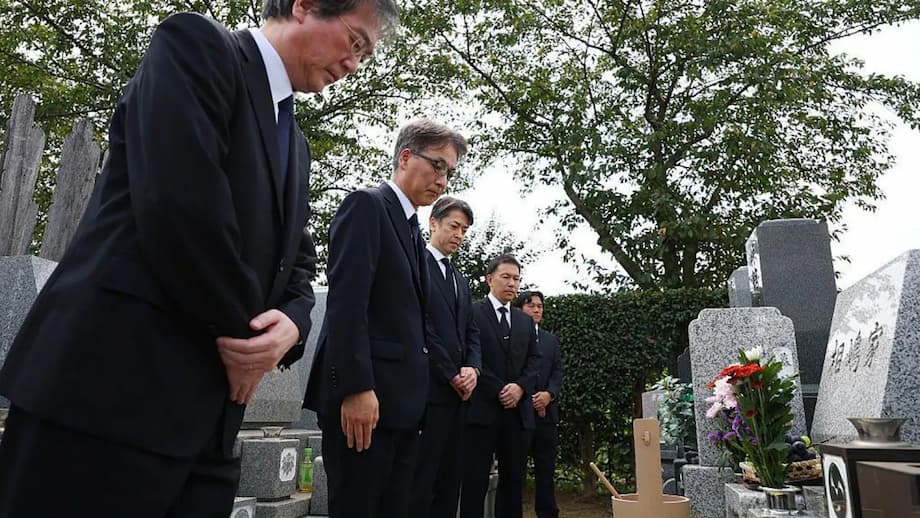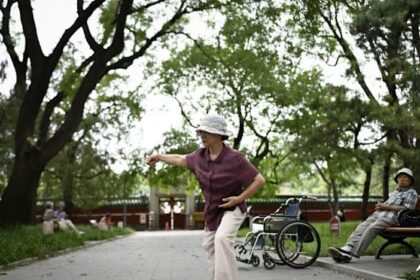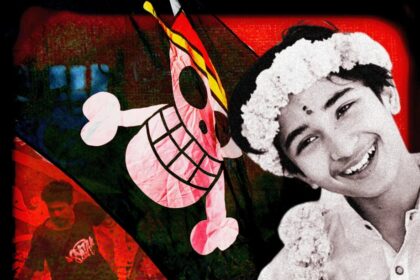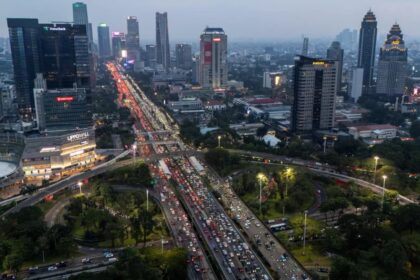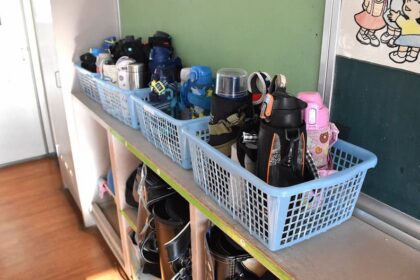The Apology at the Grave: A Nation Confronts a Tragedy
On a somber morning in Yokohama, senior Japanese police and prosecutors bowed deeply and offered flowers at the grave of Shizuo Aishima, a businessman whose life was upended—and ultimately ended—by a wrongful prosecution. The ceremony, attended by Aishima’s widow and sons, was more than a gesture of contrition: it was a public reckoning with a justice system that critics say failed not only Aishima, but the very principles of fairness and human rights.
- The Apology at the Grave: A Nation Confronts a Tragedy
- How Did a Business Dispute Become a Human Rights Scandal?
- Japan’s ‘Hostage Justice’ System: What Is It and Why Is It Controversial?
- The Human Cost: Family Reactions and Calls for Reform
- Broader Implications: Trust in Japan’s Justice System at Stake
- In Summary
Shizuo Aishima, a respected engineer and adviser to the machinery company Ohkawara Kakohki, was arrested in March 2020 alongside two colleagues. Accused of illegally exporting spray dryers—machines that can turn liquids into powder and, in theory, be repurposed for military or biological weapons use—Aishima maintained his innocence throughout. He died of stomach cancer in February 2021, still under indictment, after eight denied bail requests and months in detention. It was only five months after his death that prosecutors dropped the charges, admitting doubts about the case.
Why Did Authorities Apologize?
The apology came after a Tokyo High Court ruling found the investigation, arrest, and prosecution of Aishima and his colleagues to be illegal. The court ordered the Japanese government and Tokyo Metropolitan Police to pay 166 million yen (about $1.12 million) in compensation. The apology at the grave was a rare and highly symbolic act, reflecting both the gravity of the injustice and mounting public pressure for accountability.
How Did a Business Dispute Become a Human Rights Scandal?
The case against Aishima and Ohkawara Kakohki centered on the export of spray dryers to China. Japanese authorities alleged these machines could be used to produce biological weapons, making their export a violation of the Foreign Exchange and Foreign Trade Law. The company, however, insisted its exports were legal and not subject to such restrictions. The Ministry of Economy, Trade and Industry initially agreed, but police and prosecutors pressed forward, reportedly encouraging the ministry to reinterpret the rules to support their case.
During the investigation, Aishima cooperated fully, giving 20 voluntary interviews and traveling long distances despite his age and health. Yet, as the case progressed, police fabricated evidence and ignored exculpatory information, according to court findings and later media investigations. The prosecution’s case was so weak that, after Aishima’s death, charges against his colleagues were also dropped.
The Toll of Detention: Illness, Denied Bail, and Death
While in detention, Aishima developed anemia and was later diagnosed with advanced stomach cancer. Despite repeated pleas from his lawyers and family for bail so he could receive proper medical treatment, authorities denied eight separate requests. Prosecutors argued that Aishima might destroy evidence if released—a common rationale in Japan’s pretrial detention system. Only when his condition became critical was he granted temporary release, but by then it was too late: he died three days later, at age 72.
His colleagues, company president Masaaki Okawara and director Junji Shimada, were also detained for months. They were eventually released on the condition they not meet with Aishima, preventing them from seeing him before his death. The emotional and physical toll on all three men and their families was immense.
Japan’s ‘Hostage Justice’ System: What Is It and Why Is It Controversial?
The Aishima case has become a flashpoint in the debate over Japan’s so-called “hostage justice” system. Under this system, suspects can be held in pre-indictment detention for up to 23 days, often with extensions granted by splitting cases into multiple offenses. Critics argue that this system is used to pressure suspects into confessing, sometimes to crimes they did not commit. Those who maintain their innocence, like Aishima, are less likely to be granted bail and may face prolonged detention under harsh conditions.
Human rights organizations, legal scholars, and international observers have long criticized Japan’s pretrial detention practices. The United Nations Human Rights Committee has repeatedly called on Japan to reform its system, citing concerns about coerced confessions, lack of access to legal counsel during interrogations, and the denial of bail even in cases involving serious illness.
Systemic Failures: Fabricated Evidence and Chain-of-Command Breakdowns
Internal investigations and court testimony revealed that the police and prosecutors not only ignored evidence that could have exonerated Aishima and his colleagues, but also fabricated documents and pressured witnesses. A May 2019 report on the spray dryers, for example, deliberately excluded data unfavorable to the prosecution’s case. Some officers later testified in court that the case was “fabricated” and that arrests were made at the will of individuals with authority, rather than based on facts.
The Tokyo Metropolitan Police Department’s own review concluded that dysfunction in the investigative chain of command led to the wrongful arrests. The Supreme Public Prosecutors Office admitted that prosecutors failed to properly weigh exculpatory evidence and that the process lacked basic fairness. These admissions, while significant, have not satisfied the families of the accused, who continue to call for deeper investigation and more severe disciplinary measures.
The Human Cost: Family Reactions and Calls for Reform
At the graveside apology, Aishima’s wife accepted the officials’ words but made clear that forgiveness was not possible.
“I accept the apology, but I will never forgive,”
she said, expressing the enduring pain and anger felt by the family. Aishima’s eldest son echoed this sentiment, acknowledging the apology as a step forward but demanding a reinvestigation and reconsideration of disciplinary actions against those responsible.
The family’s lawyer, Tsuyoshi Takada, emphasized that the injustice was not the result of a single judge’s error, but a systemic problem requiring broad reform.
“The men’s detention was not the mistake of a single judge. The court must learn from this case to prevent more victims of ‘hostage justice’ in the future.”
Legal Aftermath: Compensation, Appeals, and Ongoing Lawsuits
Following the court’s ruling that the arrests and indictments were illegal, the government and police were ordered to pay substantial damages. However, the legal battles are not entirely over. Both sides have appealed aspects of the compensation rulings, and criminal complaints have been filed against police officers accused of falsifying documents and destroying evidence. The company, Ohkawara Kakohki, continues to seek full accountability and proper investigation by prosecutors.
In a separate lawsuit, Aishima’s family sought damages for his death, arguing that he was denied proper medical care while in detention. The Tokyo District Court rejected this claim, stating that detention house doctors acted appropriately. The family, however, maintains that earlier intervention could have saved his life and continues to fight for recognition of the suffering he endured.
Broader Implications: Trust in Japan’s Justice System at Stake
The Aishima case has shaken public confidence in Japan’s law enforcement and judicial institutions. Editorials in leading Japanese newspapers have called for a thorough investigation of the culture that allowed such human rights violations to occur. The Tokyo High Court’s decision was described as “an extremely heavy decision” that exposes the shoddiness of the investigation and the dangers of a system that prioritizes confessions and quick results over truth and justice.
Some observers have drawn parallels to other high-profile wrongful convictions in Japan, such as the case of Iwao Hakamada, who spent nearly six decades on death row before being acquitted after a retrial exposed fabricated evidence and forced confessions. These cases, critics argue, are not isolated incidents but symptoms of deeper structural problems.
International Reaction and Pressure for Reform
The international community has taken notice. Human rights campaigners and organizations have renewed calls for Japan to end its “hostage justice” practices and bring its legal system in line with international standards. The United Nations and foreign governments have urged Japan to ensure suspects’ rights to fair treatment, legal counsel, and medical care.
Japan’s government has acknowledged some of these concerns, with officials expressing “deep regret” and pledging to review procedures. However, concrete reforms have been slow, and many families and advocates remain skeptical that meaningful change will occur without sustained public and international pressure.
In Summary
- Shizuo Aishima, a Japanese businessman, was wrongfully arrested and detained on charges of illegal export, dying in custody after repeated denial of bail and medical care.
- Authorities formally apologized at his grave after a court ruled the investigation and prosecution were illegal, ordering over $1 million in compensation.
- The case exposed serious flaws in Japan’s “hostage justice” system, where suspects are often held for long periods without bail, especially if they maintain their innocence.
- Internal reviews and court testimony revealed fabricated evidence, dysfunction in the investigative chain of command, and disregard for exculpatory information.
- Aishima’s family accepted the apology but continues to demand deeper investigation and stronger disciplinary measures against those responsible.
- The case has sparked national and international calls for reform of Japan’s pretrial detention and prosecution practices, with critics warning that similar injustices could happen again without systemic change.


